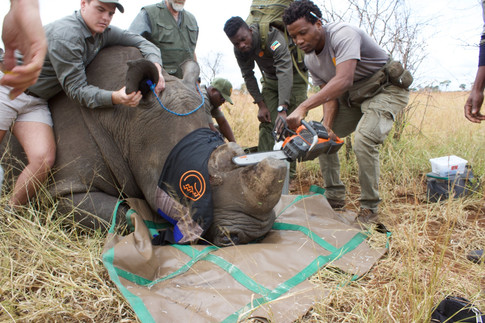Preserving Rhino Populations: Dehorning Operation
- MWA

- Mar 26, 2024
- 1 min read

Our team recently undertook a mission to conduct a strategic conservation initiative aimed at preserving the rhinoceros population in Southern Mozambique. Facilitated by a collaborative effort between the MWA and ANAC, the operation successfully dehorned eight rhinos—comprising five males and three females.
Dehorning plays a pivotal role in rhino conservation efforts by reducing their susceptibility to poaching. The rhino horn, highly prized in illegal wildlife trade, serves as a primary target for poachers. Removing this valuable commodity under controlled conditions diminishes the incentive for illegal hunting significantly.
Moreover, dehorning is a non-invasive procedure conducted by veterinary teams with minimal stress to the animals. As the rhino's horn is composed of keratin, akin to human fingernails, its removal doesn't cause pain or harm to the rhino.
The recent dehorning operation underscores the effectiveness of collaborative conservation strategies. By combining resources, expertise, and efforts, stakeholders can implement impactful measures to protect vulnerable species like the rhinoceros.
Furthermore, we extend our gratitude to the Rhino Recovery Fund for their invaluable support in this mission.














Comments